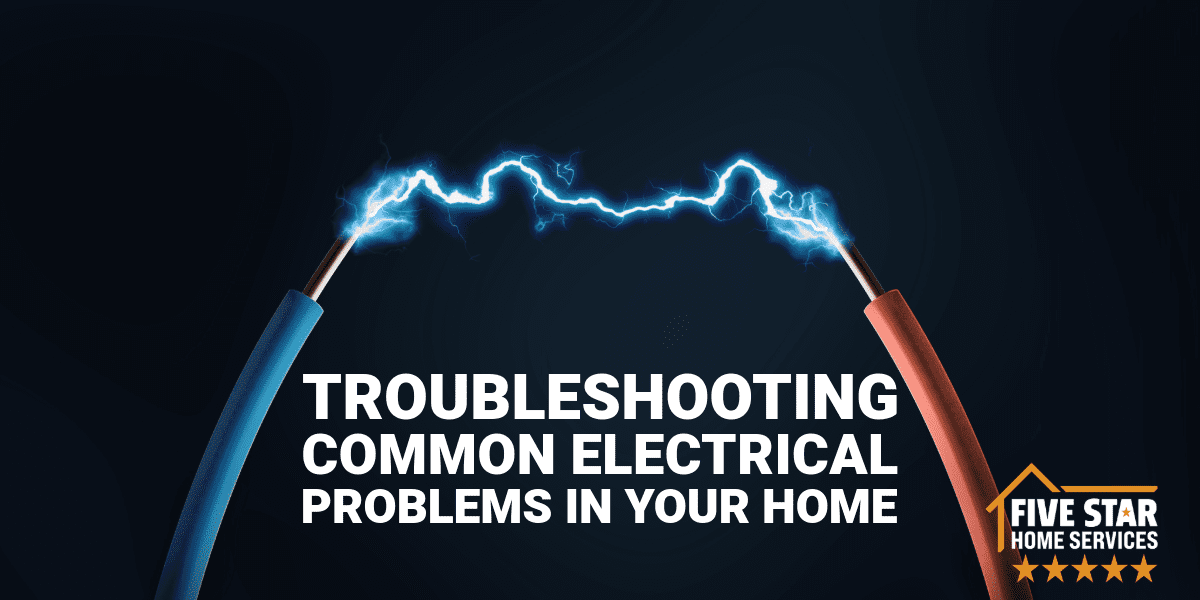Most electrical problems are too dangerous to be handled by inexperienced individuals and are best left in the hands of professional electricians. However, as a homeowner, you may encounter common electrical issues that have simple enough solutions that you may want to use yourself before calling in the experts.
Common Electrical Issues
Lights that flicker
Most commonly, this is because of a loose or weak connection between the light and the source of electricity. Before anything else, assess whether the flickering happens to only one light, several lights in different rooms, or all the lights in the house. This will show you how extensive it is or whether it is further back in the circuit.
What you can do: If only a single light flickers, make sure that it is properly and securely screwed onto its fixture, sitting correctly so that it makes a connection. It may also help to bend the socket’s metal tab a little upwards to ensure that connection.
When to call an electrician: If multiple lights are flickering in the house, let an electrician assess the situation. It may be a faulty circuit or an electrical panel issue.
Circuit breaker tripping
As a safety measure, circuit breakers “trip” by automatically shutting off and breaking the electrical circuit when an outlet is overloaded due to using up power that is more than the outlet can handle. It may also trip due to a short circuit. This protects the system from overheating or catching fire.
What you can do: It is as simple as locating the switch in your electrical panel that services the outlet in question and flipping the switch back to “on.” You can also test each individual appliance or electrical fixture in question by plugging (and unplugging) in different outlets to test if they can handle the electrical load.
When to call an electrician: If the problem persists, the switch or wiring may be faulty, causing a short circuit. If multiple appliances are plugged into outlets in the same room and trip the circuit breaker, you may need your wiring or electrical panel updated or more outlets installed to handle the increased electrical load.
You experience electrical shocks
If you feel moderate tingling while plugging a device into an outlet, you have experienced an electrical shock. This is most commonly due to old electrical outlets that don’t have proper ground wiring, or switches or appliances that have malfunctioned due to faulty wiring.
What you can do: Avoid touching live or bare wires. Instill safe electrical practices in the home such as turning off appliances before unplugging from the source, not touching electrical cords with wet hands, or using protective covers on outlets when you have young children at home with you.
When to call an electrician: Troubleshooting this problem will require handling of faulty wiring or problems with the outlets, and as such, it is best practice to have a professional electrician take care of the problem.
Outlets and switches are warm to the touch
Some appliances undoubtedly generate heat, but outlets or switches should never feel warm or hot when you touch them. Some dimmer switches may feel just a little warm, but not unusually so. A hot outlet is a sign that excess electricity is going through that circuit; therefore, a potential electrical danger or fire hazard exists.
What to do: As soon as you notice a hot outlet or switch, cease using it, unplug all devices or appliances, and turn off the power at the circuit breaker.
When to call an electrician: As soon as you are able so that you can immediately prevent any possible electrical fire hazard.
Frequent power surges
A power surge is an unusually high voltage or a spike in electricity and may lead to appliances or electrical devices to be turned off then back on again. This sudden surge of power has the potential to damage appliances or devices, and is most commonly caused by exposed wiring, an overloaded circuit, or even lightning.
What to do: After a power surge, reset and unplug devices before resetting the circuit breaker. To prevent damage to appliances or devices in the future, use surge protectors, unplug devices when not in use, and if possible, invest in a whole-home arrester (surge protector).
When to call an electrician: A licensed electrician should assess the cause of the power surge, who will conduct a thorough inspection of your electrical grid.
Bulbs that quickly burn out
If you have just installed a new bulb and noticed that it burned out too quickly, there may be a problem with the circuit.
What to do: Check that the bulb’s wattage is the correct one for the socket. Otherwise, it may be drawing too much power and causing the bulb to burn out quicker.
When to call an electrician: Because there might be a loose connection in the circuit, have an electrician check the situation to prevent any electrical fires from occurring.
Plugs that easily fall out of wall outlets
When a plug goes into an outlet, it should feel snug and tight against the contacts. If it is loosely connected, then the contacts are defective.
What to do: You can purchase spacers to keep the connection tight or replace the outlet yourself, which is fairly easy.
When to call an electrician: If there is visible faulty wiring or you suspect that the cause is something other than defective contacts, call a professional.
These are just some of the more common electrical issues in your home. With all things electrical, the best way to handle the problem is by having a licensed electrician assess your situation. At Five Star Home Services, we have experts ready to help you with your electrical issue. Give us a call at (833) 405-8009.


